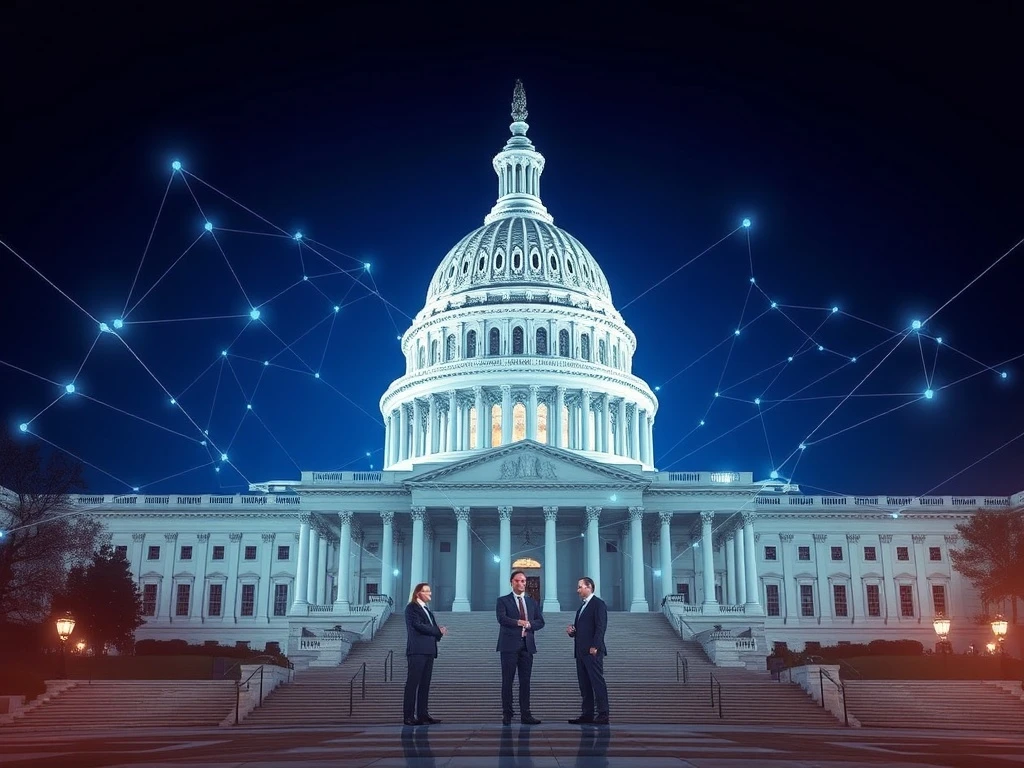American cryptocurrency markets are poised for transformation as the U.S. Senate Banking Committee finalizes groundbreaking legislation that could reshape the entire digital asset landscape. The 2025 Responsible Financial Innovation Act represents a significant shift in crypto regulation approach, moving from restrictive oversight to innovation-friendly frameworks that could position the United States as a global leader in blockchain technology.
Senate’s Progressive Crypto Regulation Framework
The Senate Banking Committee released its updated 182-page market structure bill on September 5, 2025. This comprehensive crypto regulation proposal includes revolutionary provisions that differentiate it from previous legislative attempts. Significantly, the bill exempts blockchain validators from anti-money laundering requirements and clarifies that NFTs do not constitute securities offerings. These changes demonstrate a sophisticated understanding of blockchain technology’s unique characteristics.
Key Provisions in the New Crypto Regulation
The updated legislation contains several critical elements that industry stakeholders have long advocated for:
- Validator exemptions from AML and anti-fraud compliance requirements
- NFT clarification stating they are not securities offerings
- SEC-CFTC collaboration requirements for digital commodity rules
- Software developer protections absent from House versions
Inter-Agency Cooperation on Crypto Regulation
The bill mandates unprecedented collaboration between the SEC and CFTC. Both agencies must jointly issue rules governing digital commodities, reducing regulatory overlap and confusion. This cooperative approach addresses longstanding industry complaints about conflicting guidance and enforcement actions. Consequently, regulatory clarity should accelerate institutional adoption and mainstream acceptance.
Market Impact of Updated Crypto Regulation
Major U.S. exchanges including NYSE and Nasdaq may soon list spot Bitcoin and Ethereum products. Regulatory agencies have clarified that registered exchanges can facilitate spot trading without legal barriers. This development represents a critical turning point for institutional investment in digital assets. Moreover, the legislation’s innovation-friendly stance could attract blockchain businesses to U.S. markets.
Legislative Timeline and Political Support
Senator Cynthia Lummis anticipates a unified bill could reach President Trump’s desk by Thanksgiving. The House’s CLARITY Act already passed with substantial bipartisan support, receiving 294 votes including 78 Democrats. However, the Senate’s revised draft introduces new provisions requiring negotiation between chambers. The full committee expects to review the legislation by September’s end.
Future Implications for Crypto Regulation
This legislative shift signals broader changes in federal approach to digital assets. Regulatory bodies increasingly recognize the need for frameworks that balance innovation with investor protection. The collaborative stance between agencies reinforces the necessity for coordinated oversight. Ultimately, comprehensive crypto market structure framework appears increasingly achievable.
Frequently Asked Questions
What is the Responsible Financial Innovation Act?
The 2025 Senate bill that establishes comprehensive regulatory framework for digital assets, focusing on innovation while providing clarity for market participants.
How does the Senate bill differ from House legislation?
The Senate version includes validator exemptions, NFT clarifications, and software developer protections absent from the House’s CLARITY Act.
When will the legislation take effect?
The bill undergoes committee review in September 2025, with potential presidential approval possible by Thanksgiving 2025.
How will this affect cryptocurrency exchanges?
Major exchanges like NYSE and Nasdaq may list spot crypto products, while regulatory clarity reduces compliance uncertainty.
What does this mean for NFT creators?
The bill explicitly states that offering, selling, or transferring NFTs does not constitute securities offerings.
How will validator operations change?
Blockchain validators will be exempt from AML and anti-fraud compliance requirements under the proposed legislation.








